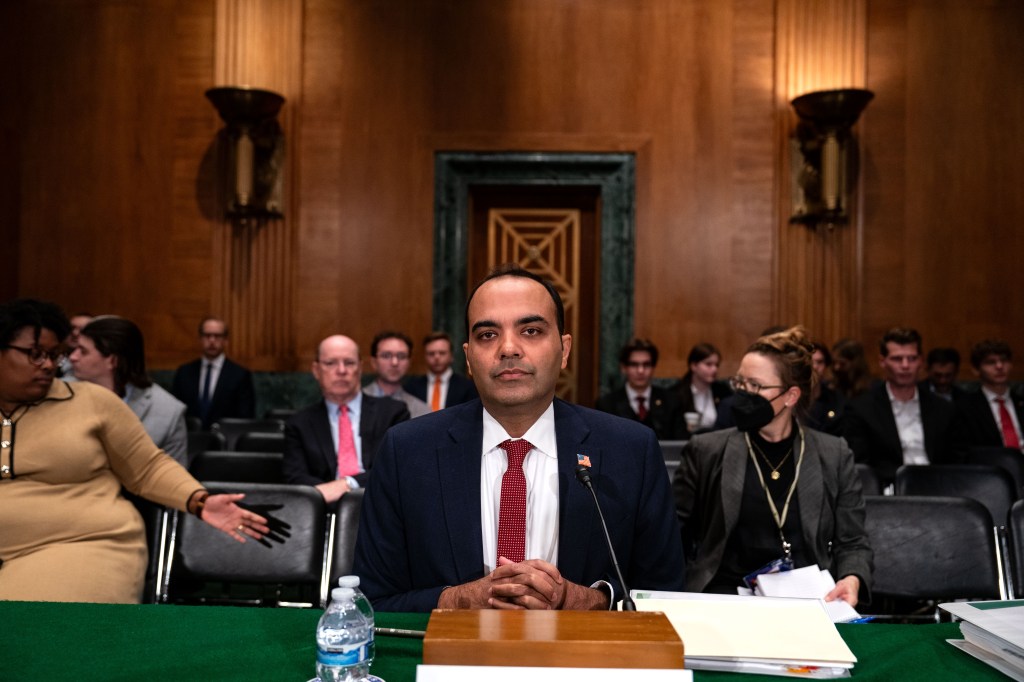Carmen Cracknell, Senior Reporter

Companies will vie for supremacy in AI, which remains the buzz term of the moment. A new generation will train in niche elements of this industry.
There have been several high-profile AI conferences this year. Despite an emphasis on the importance of regulation, no one is really sure how this might be implemented in practice.
Workplaces will need to adapt as AI takes over more of the repetitive tasks in day-to-day work.
Employees with strong communication skills, empathy, and judgement, but with the technical skills required to understand AI and its implications, will be in demand. There won’t be an immediate shift in the coming year, but the process will continue apace.
Financial services firms will continue to integrate large language models.
Jean Hurley, Commissioning Editor

The UK will become the AI maverick without burdensome new legislation.
Governments around the world are attempting to balance AI innovation with safe adoption, developing new AI policies and laws. UK is the outlier, utilizing existing regulators and regulations.
AI is central to the UK’s tech ambitions with the government hosting an international AI safety summit earlier this year. The UK Chancellor pledged £500m ($625m) investment in AI in his Autumn Statement. Unlike other nations, there will be no new AI law “in the short term” (Viscount Jonathan Camrose, Financial Times conference).
The United Nations and China are independently working to develop global policies that address the ethical use of AI.
In the US, President Joe Biden recently issued an executive order addressing AI, which has a primary focus on safety and security.
Europe has a new AI Act, expected to be finalised before February 2024.
Julie DiMauro, US Content Manager

The biggest issue we will grapple with is how many guardrails we put into place to curb obvious abuses (the spread of misinformation, the infiltration of illegal discrimination into data pools) that don’t also impede the promise of the technology.
Getting the balance right will continue to be a subject of study and debate.
See this article, which seems to suggest that some developments in AI are still scaring the daylights out of those who understand more about it than us!
Martin Cloake, Managing Editor

Ai is going to be an even bigger issue than previously. A major reason for that will be growing general realisation of what AI is, how it can be used, and what the implications are.
We’ll pass the tipping point where, just as we do now with smartphones and the internet, we’ll wonder how we managed when AI wasn’t deeply ingrained in our lives.
That, unfortunately, means the hype will continue, making the job of making measured assessments difficult for business, policymakers and regulators. That will make life interesting for those of us covering the story, but its value in solving the practical challenges is less clear.
More in hope than expectation, I will look to see if the voices of those who will use and be most affected by AI are given the limelight currently seized by those who own and stand to benefit most from it.
But there are encouraging signs around agreements on intellectual copyright, an issue that will also become a much bigger one in the coming year.
Martina Lindberg, Production Manager

I think we will see AI more and more in our everyday life, both for personal use and because companies will adopt it to cut costs/employees (before truly understanding the impact of the need to supervise AI).
But I also think that we will see more attempts by regulators trying to set a global regulatory framework in earnest.
Thomas Hyrkiel, Head of Content Services

As with all similar technology hype that is touted as revolutionary and game-changing, progress will be slow and interest will begin to fade and shift elsewhere. This is a well-trodden path: Big Data, IoT, Blockchain, etc.
In each case the initial hype only led to disenchantment, the promise turning into peril.
One of the issues is the absence of talent in this area and the type of folks this sort of circus tends to attract.
I have been observing the career path of a senior consultant whose disastrous advice led to years of turmoil at a previous employer. Immediately after that engagement he found a role with the pleasing title of ‘Blockchain Evangelist’.
I found it both unsurprising and slightly depressing that he is currently being touted as an authority on all things AI.













